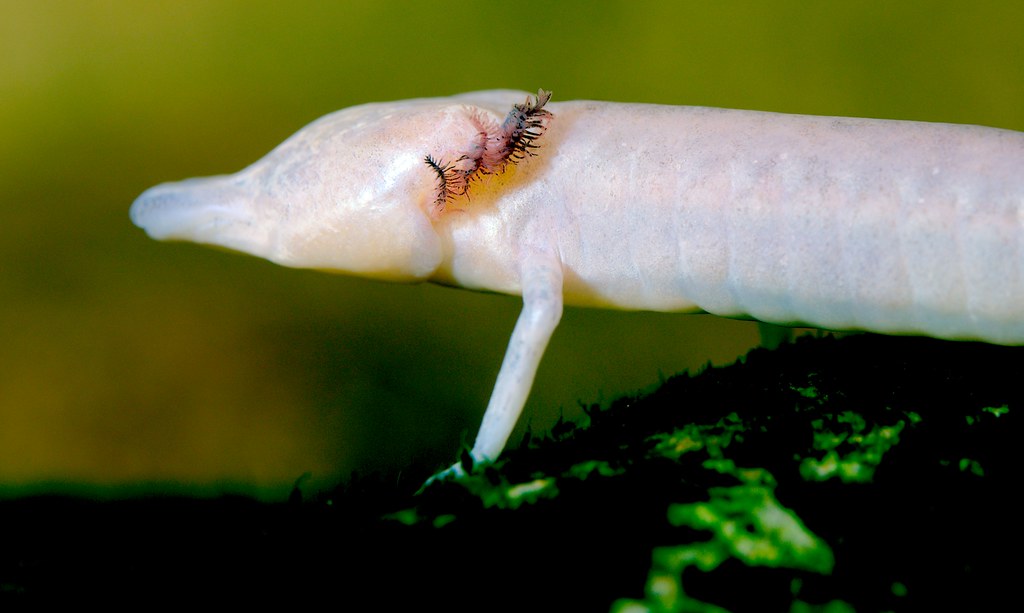The Texas blind salamander is native to Texas, but that’s not all.
More specifically, it is native to the Edwards aquifer in Texas.
More specifically, it is native to the part of the Edwards aquifer in Hays County, Texas.
More specifically, it is native to the part of the Edwards aquifer in the city of San Marcos in Hays County, Texas.
More specifically, it is native to the part of the San Marcos Pool of the Edwards aquifer in the city of San Marcos in Hays County, Texas.
And that’s the problem with certain rare species. The conditions they require for survival are so specific to their needs (having evolved to be a precise fit), that even small changes can push them straight to extinction. Due to how Mexico’s use of water has changed, this is happening with the axolotl (also living in a very specific pool), but it also happens to island species. Sometimes the change is due to something else establishing itself on the island – rats, snakes, pigs, rabbits, frogs/toads, humans, etc. Increasingly, though, it is due to climate change.
We like to think that as the climate changes, animals will just move, but that’s not an option for everyone. Animals can become trapped in “survival pockets”, like actual islands, the tops of mountains, areas of land surrounded by mountains, peninsulas, etc. As the planet warms, survival zones shrink and species are condensed into these smaller pockets, competing for fewer and fewer resources.
Eventually, there simply won’t be enough resources and the species will adapt or die out. There’s nothing wrong this, as this is the way the world has always been. The different is that, today, change is coming faster than ever before … and adaptation takes time. This is why the sixth extinction is such a big deal. As the planet changes, we will be seeing increasing losses of biodiversity in all sorts of places. Sure, we can survive some of them, but the web of interactions between species is amazingly complex and we have no way to know which losses will hurt our own species.
I am not so naive as to think that everyone could share the interest I have in rare species. However, I am constantly surprised at how few people prioritize long term survival of our own species over short term financial gain. Maybe the species that supplants our own will be somewhat wiser.
